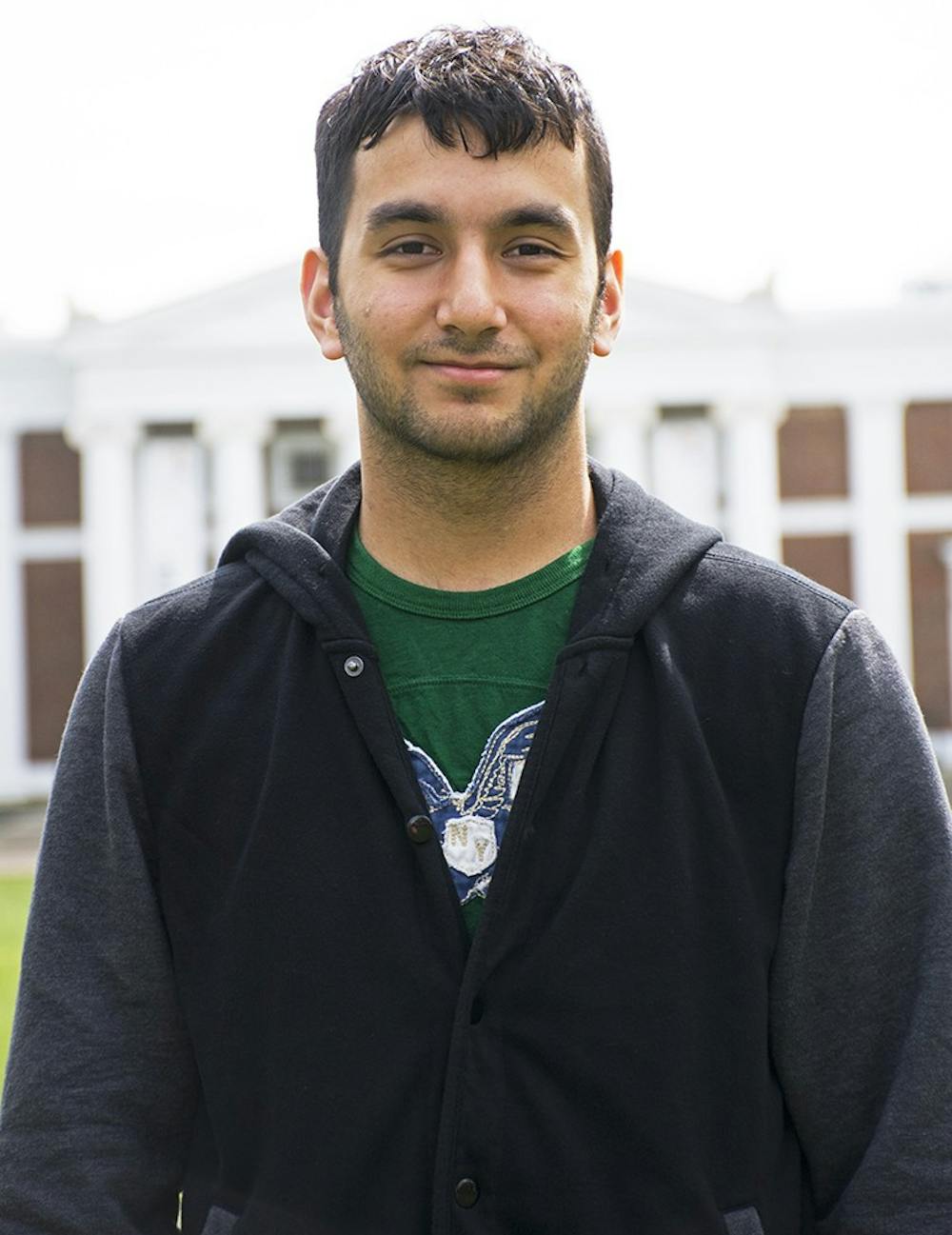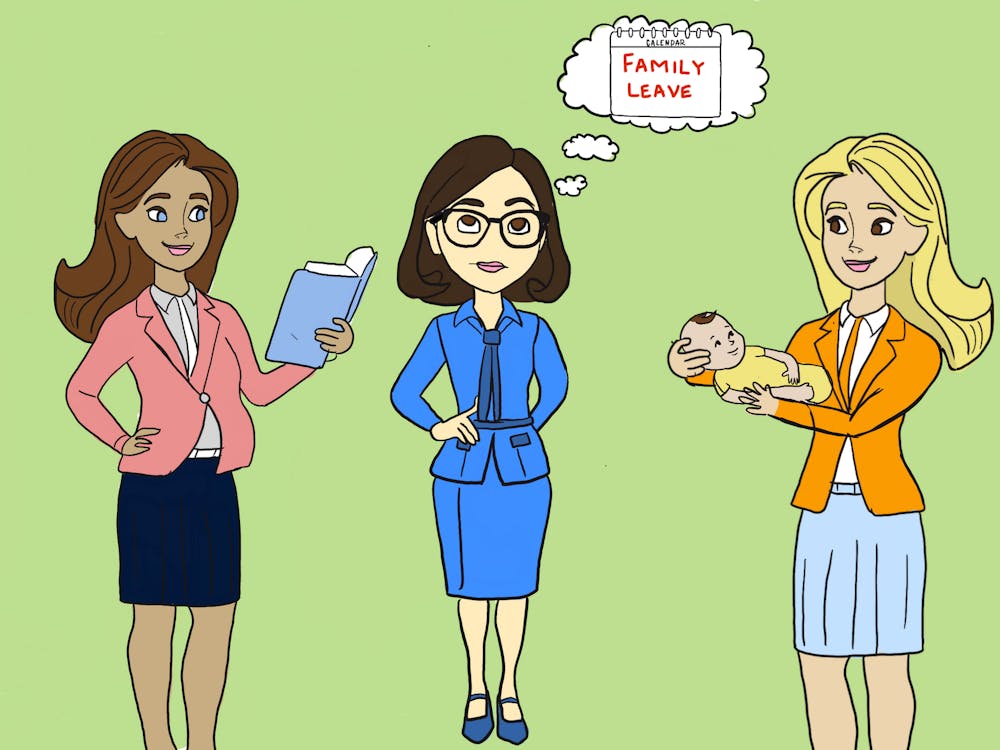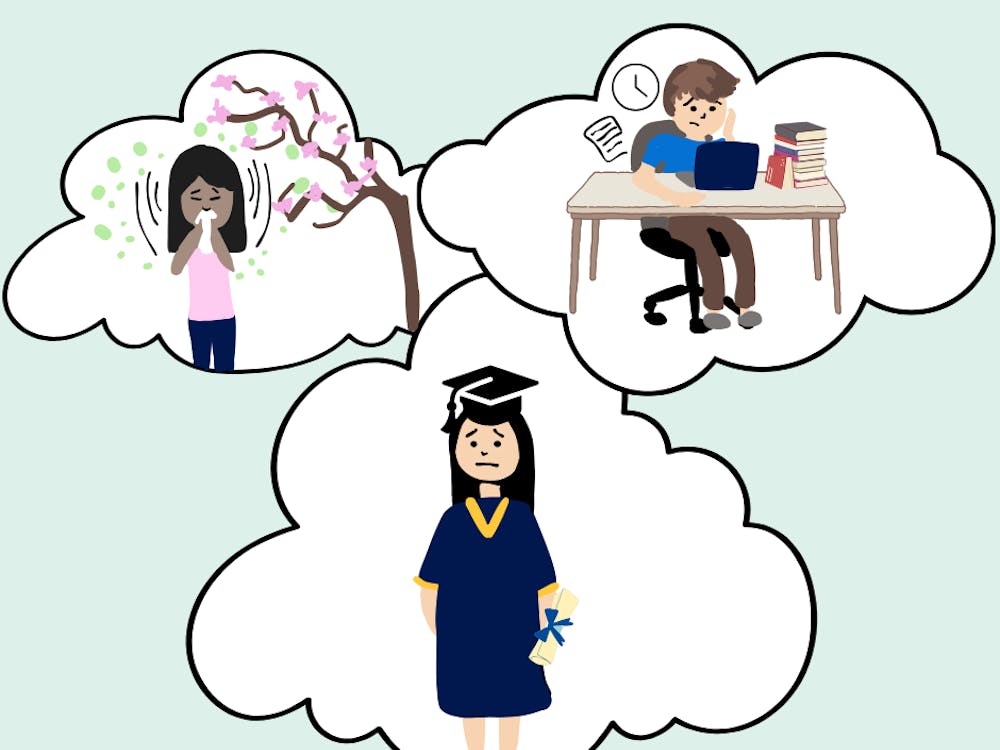While each year tens of thousands of refugees seek safety in the United States, coming to the states is often a difficult and continuous process. At the University, first-year College student Ahmad Frahmand knows these legal, emotional and access challenges firsthand. In the face of his refugee status, Frahmand has found success and community — a story many organizations in Charlottesville hope to make the norm.
Refugee and student
The challenges a refugee living in the United States faces are incomprehensible to most citizens born in the country. When combining these experiences with an academically rigorous university, the story turns into something much more complicated.
At five years old, Ahmad Frahmand was displaced from his home in Afghanistan. After facing dangerous conditions in his home country, living in a two-bedroom townhouse with a family of nine and tackling language barriers, Frahmand was prepared to face his newest challenge — going to college.
“It’s definitely difficult, but I can’t really blame my background,” Frahmand said. “I was a few years behind everybody else, but I think I was able to overcome that through hard work and dedication.”
In the years leading up to Frahmand’s departure from Afghanistan, European radio and journalism companies like that of Frahmand’s father were under close watch by the Taliban. After receiving word that the Taliban might be after journalists, Frahmand and his family obtained green cards and moved to the United States in 2001.
“The way my family was in the place that we lived, it was very dangerous,” Frahmand said. “When we got our visa and were able to leave the country and come here on [a] green card, it was definitely amazing for my whole family. It meant we would no longer have to be in a war zone, and we would be able to live peacefully.”
Prior to his family’s departure, Afghanistan was a nation divided, as the Taliban claimed authority though the Islamic State of Afghanistan maintained official recognition. From 1996 to 2001, the Taliban held significant power in the country, culminating in the intervention of the United States.
During this time in Afghanistan, conditions are marked by violence and instability. Following the September 11, 2001 terrorist attacks, the United States declared a War on Terror and invaded Afghanistan to depose the Taliban. In the face of war, Frahmand and his family elected to leave the country and seek refuge in America.
First-year College student Joshua Justus — a friend of Frahmand’s — said Frahmand does not let his experiences as a refugee hold him back.
“I know very little of Ahmad’s refugee background. However, he is not ashamed of his past,” Justus said in an email statement. “He can openly talk about Afghanistan, taking into account … its flaws, its shortcomings and its successes. I think that, although he has had a rough past, he is not playing the victim.”
Frahmand said his family helped him through some of the early struggles in his life to where he is today.
“My family really supported me through all of it,” Frahmand said. “They put me into Head Start and they put me into the summer school classes, so through that, they really helped me achieve a lot even though I was kind of disadvantaged at first because I came to the country a little late and learned things a little later than other people.”
In addition to support from his parents, Frahmand’s six older siblings paved a path for him he might not have otherwise seen after coming to the United States.
“I have six people that have gone through what I’ve gone through before me,” Frahmand said. “So I know … what they’ve done, and I’ve learned from that. It was way worse for them, because they came here barely knowing any English.”
Similarly to other students, Frahmand has adjusted to the University’s challenging academic curriculum. Outside of class, he is involved with First Year Leadership Experience and Muslim Students Association.
“I feel like I really fit into the Muslim community here, which was a little shocking because I’ve lived in America for [more than] 10 years,” Frahmand said. “I thought it would be hard for me, but it was [with a] really simple, fluid motion that I was able to integrate.”
Frahmand’s past gives him a desire to challenge himself both socially and academically, Justus said.
“Ahmad participates in extracurricular activities and takes difficult classes,” Justus said. “If anything, his past situation has encouraged him to work harder.”
The legal process
Harriet Kuhr, director of the International Refugee Committee in Charlottesville, said the organization aims to provide for the success of refugees despite the challenges they face.
“It makes us so proud when we see people come as young refugees, whether they’re really young or coming as high school students … when they graduate and can succeed in their studies,” Kuhr said. “[Attending college is] the epitome of what we want to see.”
In 2013, the most recent year available for Homeland Security statistics, the United States admitted 69,909 total people as refugees. Gaining status as a refugee in the United States is a long process, often lasting one year or more.
The process refugees must go through, before applying for legal residence and receiving eligibility for American citizenship, is a meticulous and thorough process, Kuhr said.
“Refugees have to demonstrate a well-founded fear of persecution,” Kuhr said. “They must explain why they’re a refugee and not just an immigrant.
Along with medical checks and background checks against multiple databases, Kuhr also said every single refugee has a face-to-face interview with the Department of Homeland Security, which can take several hours to go through every question in the application.
Frahmand’s story is one of many. It is important to understand what a refugee is, and what the process of integration involves, Kuhr said.
“We are a nation of immigrants that has been open to working with the most vulnerable people in a way to help them rebuild their lives and contribute to America,” Kuhr said. “Immigrants have given a lot. There's a lot we’ve gotten from immigrants who have come over. That’s part of our identity — it’s part of who we are. We don’t want to lose sight of that.”
Resources for refugees
At the University and in Charlottesville, refugees and immigrants like Frahmand have access to special resources in unique healthcare and medicinal needs. The International Family Medicine Clinic provides “more comprehensive, timely, culturally sensitive and high-quality healthcare to the growing immigrant and refugee populations in Central Virginia,” according to its website.
IFMC Director Fern Hauck said the clinic has served about 2,500 refugees in the Central Virginia area.
“We’ve grown quite a lot … We now are seeing about 250 refugees who arrive in Charlottesville,” Hauck said. “They are settled by the [International Refugee Committee], and then we have an agreement where I had offered and they happily accepted that we would provide the health care to refugees.”
Although each refugee who comes to the United States has an individual story and background, there are common medical setbacks many refugees must tackle when they enter the country. The IFMC provides care to refugees who might not have access to health insurance or other benefits given to natural-born citizens.
“Many communities don’t have [a] clear source of primary care for refugees and they may not have adequate services for them, so we created this service for them, which is fairly unique,” Hauck said. “They will have been in settings where they didn’t have access to full medical care, so many refugees arrive with malnutrition. We provide the treatment that’s needed and refer them to a specialist if needed. We do health maintenance for things they might not have had access to.”
Although the IFMC provides numerous health care options to refugees who have limited access to medical care, more long-term solutions are still needed to fill the deficit of access to health insurance and community engagement, Hauck said.
“There’s a lot going on in the community to try to help the refugees,” Hauck said. “I think they often need a lot of support but [need] even more community engagement, helping refugees and seeing this on a larger scale and for longer periods of time.”
Looking to the future, Frahmand plans to bring what he has learned back to his home. After graduating from the University, Frahmand hopes to practice medicine in the Middle East.
“If I ever get into medical school and I become a doctor, I’ve always wanted to go back to the Middle East and live there,” Frahmand said. “I would really love to go back to my country and help be there for a lot of people who need medical attention.”
While Frahmand recognizes the effect his status as a refugee plays in his young adult life, he is careful to note that this hasn’t inhibited his ability to achieve.
“We were in a Section 8 house for a while, and we were on food stamps,” Frahmand said. “I’ve definitely overcome that. I don’t want to blame that. I’ve definitely come a long way — I did it by myself and with my family’s help. I don’t want to say that because of my background, it’s stopped me from achieving higher heights than I have achieved.”







